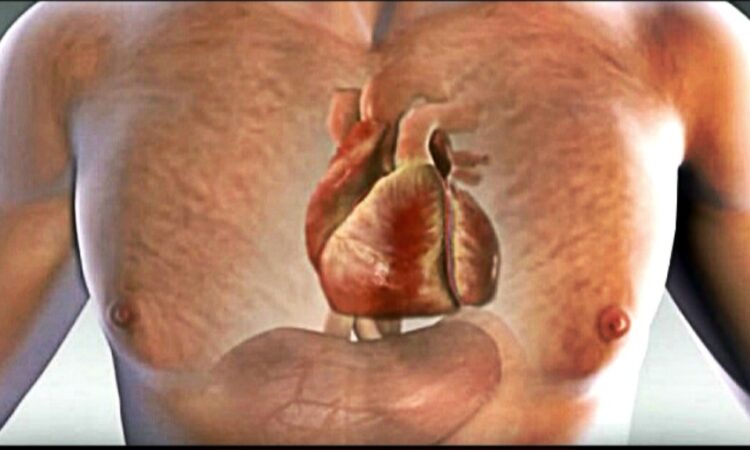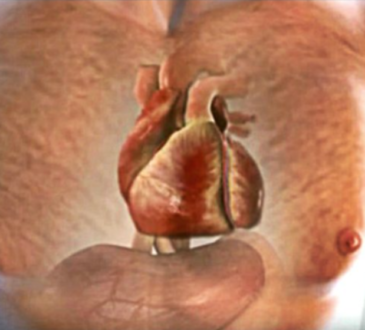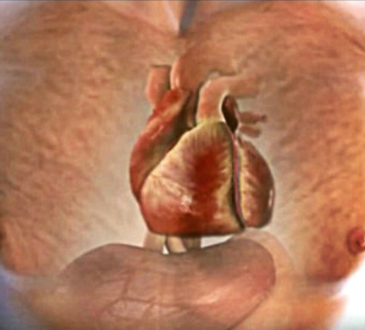
Today, life is fast-paced, and many people juggle work, family, and other responsibilities, leaving little time to take care of their health. This stressful lifestyle can lead to serious health problems, including heart disease.
Why Are Heart Attacks So Common?
One major reason for heart problems is an unhealthy diet. Many Americans eat a lot of fast food, which is high in unhealthy fats, salt, and sugar. This kind of diet can cause weight gain, high blood pressure, and diabetes—factors that increase the risk of heart attacks.
Obesity is also a big problem. Many people struggle to maintain a healthy weight due to busy schedules, lack of exercise, and poor eating habits. Being overweight puts extra strain on the heart, making it work harder than normal. Over time, this can lead to serious heart conditions.
What Happens During a Heart Attack?
A heart attack happens when the blood flow to the heart is blocked. This can happen because of a buildup of fat, cholesterol, or other substances in the arteries. When the heart doesn’t get enough oxygen-rich blood, the affected part of the heart muscle starts to die.
The scary thing is that a heart attack can happen suddenly, but in most cases, the body gives warning signs before it occurs. If you pay attention to these signs, you can seek help early and possibly prevent a life-threatening event.
Common Warning Signs of a Heart Attack
Here are some of the symptoms your body might show before a heart attack:
1. Extreme Tiredness (Fatigue)
Feeling constantly exhausted, even after resting, can be an early sign of heart trouble. This happens when your heart is struggling to pump enough blood to your body. Women, in particular, may feel this type of fatigue days or even weeks before a heart attack.
✔ If you feel unusually tired for no clear reason, don’t ignore it—talk to a doctor.
2. Shortness of Breath
Do you ever feel like you can’t catch your breath, even when you’re not doing anything strenuous? This can happen when your heart isn’t pumping enough oxygen-rich blood to your lungs.
✔ If you notice that climbing stairs or walking short distances leaves you breathless, take it seriously and get checked.
3. Weakness or Lightheadedness
Suddenly feeling weak, shaky, or like you might faint can be a sign that your blood flow is poor. This could mean your heart isn’t working properly.
✔ If you feel weak for no clear reason, sit down, rest, and see if it improves. If it keeps happening, see a doctor.
4. Dizziness and Cold Sweats
Breaking into a cold sweat and feeling dizzy without any reason can be a sign of a heart attack. It happens when your blood circulation drops suddenly.
✔ If you feel clammy, nauseous, or lightheaded along with other symptoms, it could be serious.
5. Chest Pain or Pressure
This is one of the most well-known signs of a heart attack. People often describe it as:
- Tightness in the chest
- A squeezing or heavy feeling
- A burning sensation similar to heartburn
The pain might come and go, or it might get worse over time. It may spread to the shoulders, arms, back, neck, or jaw.
✔ If you feel this kind of chest pressure, especially if it lasts for more than a few minutes, call emergency services immediately.
6. Flu-Like Symptoms
Many heart attack survivors have reported feeling like they were coming down with the flu a few days before their heart attack. This could include:
- Feeling weak and tired
- Chills or sweating
- Nausea or vomiting
✔ If you suddenly feel like you have the flu but it doesn’t go away, especially along with other symptoms, consider seeing a doctor.
What Should You Do If You Notice These Signs?
If you or someone you know is experiencing multiple symptoms on this list, do not wait! Call 911 (or emergency services in your country) immediately. Early treatment can prevent serious damage to your heart and could save your life.
How to Lower Your Risk of a Heart Attack
Even though heart attacks are common, there are steps you can take to lower your risk:
- Eat healthy foods: Choose fruits, vegetables, whole grains, and lean proteins instead of processed or fast food.
- Stay active: Aim for at least 30 minutes of exercise most days of the week. Walking, swimming, or cycling can help keep your heart strong.
- Manage stress: Find ways to relax, such as meditation, deep breathing, or spending time with loved ones.
- Avoid smoking and limit alcohol: Smoking damages blood vessels and increases the risk of heart disease. Drinking too much alcohol can also raise blood pressure.
- Get regular checkups: Visit your doctor for routine health checks, especially if you have a family history of heart disease.
Final Thoughts
Your heart is one of the most important organs in your body. Listen to it. If something feels wrong, don’t ignore it. Paying attention to early warning signs and making healthier choices can help you prevent a heart attack and live a longer, healthier life.
For more expert insights, watch this video featuring Dr. Travis Stork discussing heart attack symptoms and what you can do to protect yourself.




